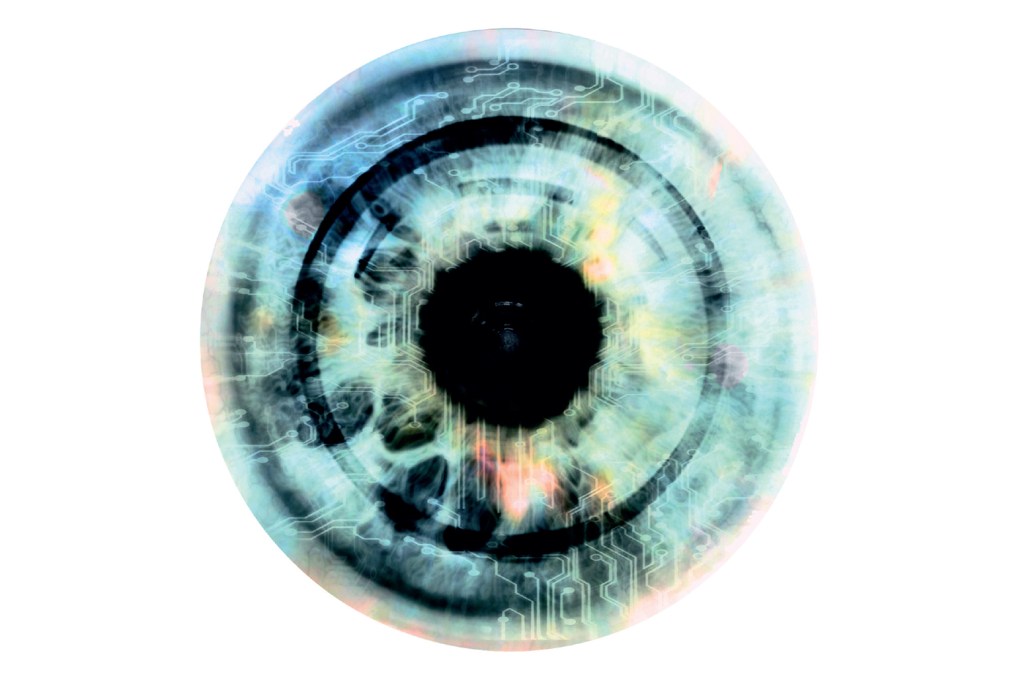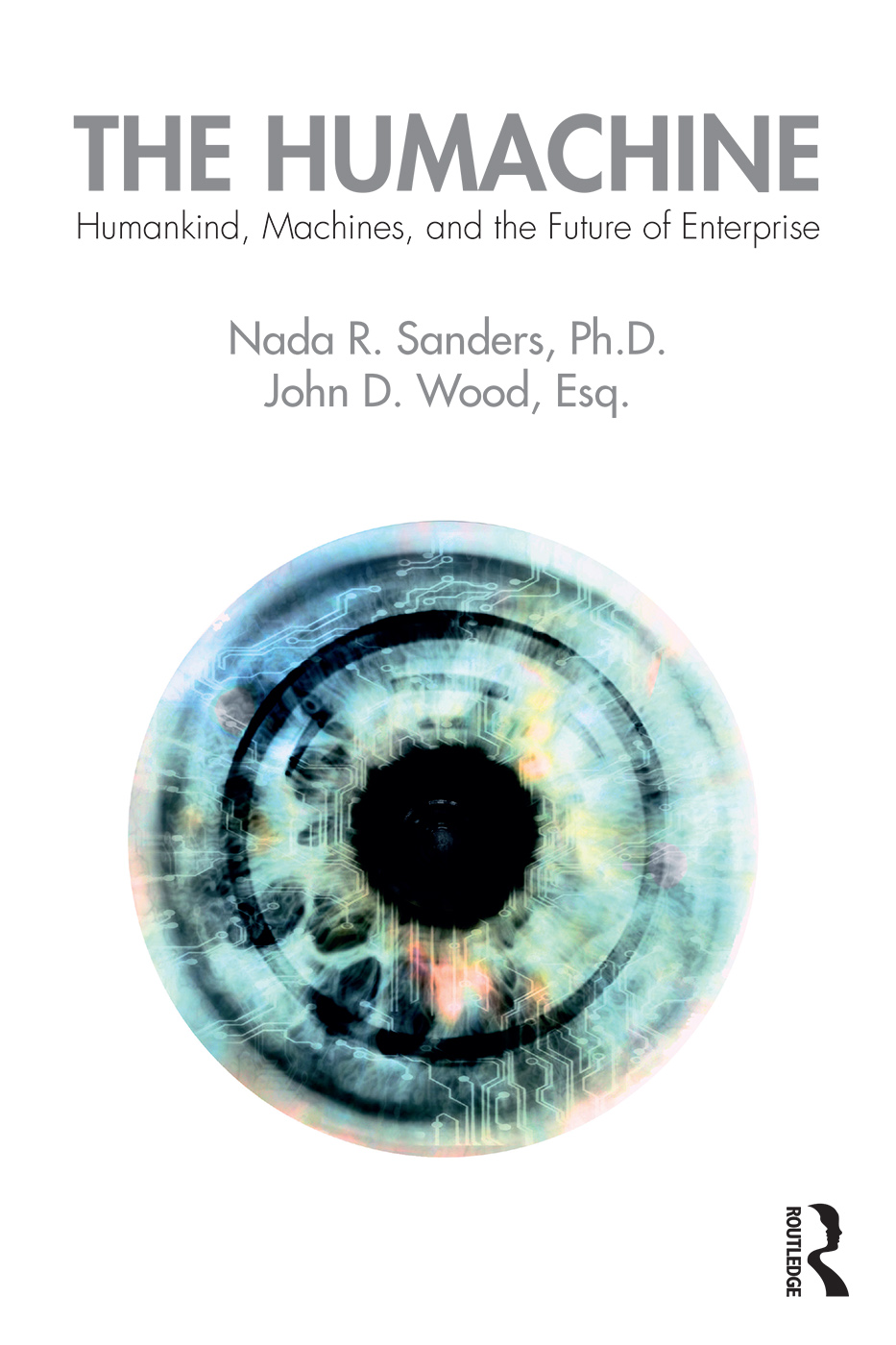Ignore the hand-wringing headlines about the impending artificial intelligence revolution, but get ready for the disruption.

The entrepreneurial spirit. Human ingenuity. The creative mind.
These are the qualities that even the most advanced robots can never replicate or replace, despite what the headlines sounding the alarm about the imminent takeover of artificial intelligence and automation will have you believe, says Northeastern professor Nada R. Sanders in The Humachine, a forthcoming book she co-authored with John D. Wood.
But when it comes to computational tasks, machines will beat us every time on processing speed, calculation accuracy, and pattern recognition.
So, maybe dismiss the hand-wringing in the headlines, but heed their warnings, says Sanders, who is Distinguished Professor of Supply Chain Management at Northeastern. In 2019, “it is not business as usual,” she says.

“It is not business as usual,” says Nada R. Sanders, Distinguished Professor of Supply Chain Management at Northeastern. Photo by Adam Glanzman/Northeastern University
It’s true: Artificial intelligence is changing the way we work, and it’s forcing some of us out of our jobs as it transforms entire industries and creates brand new ones. Organizations that take a measured and piecemeal approach to implementing emerging technologies will fall off the map, fade into irrelevance, says Sanders. Think of big box retailers.
The companies that understand how to optimize technology to complement and augment the abilities of their employees will prosper. This is an altogether new breed of organization that’s billed in Sanders’ and Wood’s book as the Humachine, which they define as “the optimal human-machine partnership.” Examples of companies that exhibit traits of a Humachine, according to Sanders, are Haier, Google, and Zappos.
“This is a completely new paradigm shift,” says Sanders. “It is going to require what we call in the book a change in the DNA of the company. It is a mutation. It’s not going from point A to point B. It is a completely different kind of organization.”

Courtesy of Nada Sanders
The problem is that the majority of companies and educational institutions are stuck in the old paradigm, she says, and both are failing to varying degrees to prepare the workforce for the future.
This theory is supported by a new survey conducted by Northeastern University and Gallup that reveals an international cross-section of opinions about artificial intelligence as economies around the world undergo the transformative move to automation. The poll shows that the majority of people in the United States, Canada, and the United Kingdom think that artificial intelligence will improve their lives, but they believe that higher education, government, and employers are not doing enough to improve their skills.
Despite concerns that they are not prepared for the new era and the job losses that will result from automation, majorities in Canada, the U.K., and the U.S. believe that advancements in machine learning will do more good than harm overall. And when asked about the best skills to withstand artificial intelligence, six in 10 respondents in Canada and the U.K. believe teamwork, communication, creativity, and critical thinking are most important in the new era of automation; whereas Americans are split 50-50 between those “soft” skills and technical skills like math, science, coding, and working with data.
“For the workforce, at every level it’s going to be lifelong learning and reskilling to develop uniquely human strengths,” Sanders says. “Humans and machines have different strengths and it’s documented by every research that we could find. We show in the book that we can combine humans and machines using the right process that enjoys the strength of both, while suffering the weaknesses of neither. But our educational system should accept the paradox.”
Here, Sanders touts the benefits of experiential learning and of humanics, a learning model conceptualized by Northeastern University President Joseph E. Aoun in his book, Robot-Proof: Higher Education in the Age of Artificial Intelligence.
“Humanics really does prepare students to perform the future jobs that only human beings can do and it achieves this by fostering purposeful integration of those technical literacies, like coding and data literacy, with the human literacy, like creativity, ethics, cultural agility, and entrepreneurship,” Sanders says.
The culmination of four years of research involving case studies and interviews with chief executive officers, senior leaders, and analysts, The Humachine started as an inquiry into how executives can adopt artificial intelligence to harness the best of human and machine capabilities, says Sanders. Along the way, it turned into a profound rumination on the future of humanity and enterprise.
“What we discovered—to our surprise—was that this should not be labeled the technology era, the fourth Industrial Revolution, if you will,” says Sanders. “It should be called the human error era, because the focus really needs to be on talent, on skilling, and re-skilling.”
For media inquiries, please contact media@northeastern.edu.